

Everything you need to know before you get an EV
From the forthcoming ban on the sale of new petrol and diesel cars, to tax incentives and even advertising campaigns, we’re all being encouraged to switch to driving an electric vehicle (EV) to help tackle air pollution and the climate crisis. Road transport made up around a fifth of the UK's total greenhouse gas emissions in 20171, and the average UK household could save two tonnes of CO2 emissions every year by switching to an EV2.
Still, making the leap can feel like a major transition. Here's what you need to know before you jump.
Better for the planet and your wallet
Over its lifetime, a fully electric car produces half the emissions of the average EU vehicle3, and that gap will grow as more renewables enter the energy mix and battery recycling improves. With no internal combustion engine (ICE) and no exhaust pipe, there are no tailpipe emissions, making for cleaner air.
Electric cars are also cheaper to run. With fewer moving parts, maintenance costs are lower than for ICE vehicles. Charging costs vary from vehicle to vehicle and charge point to charge point but work out significantly less than petrol or diesel. And fully electric vehicles are exempt from road tax, Clean Air Zone fees and London's congestion charge.

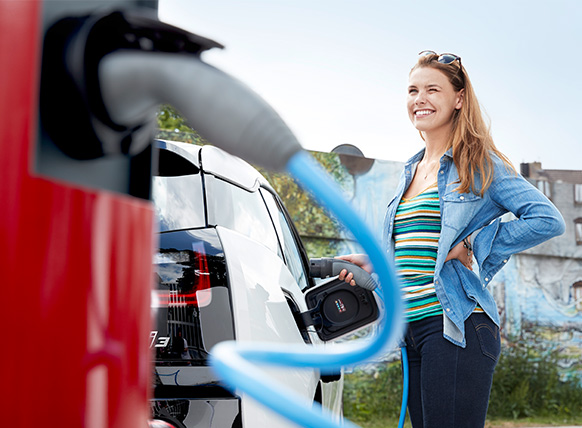
Easier than ever to charge
Gone are the days when EVs were just for city driving. Some modern EVs can travel more than 250 miles on a single charge, while E.ON's ultra-fast charging stations are capable of boosting the batteries of the latest generation of electric cars with a range of around 100 miles in just 10 minutes. The E.ON Drive network includes more than 36,000 chargers in 25 European countries, including the UK, while by 2023 the Government expects every motorway service station will offer at least six chargers.
It's also possible to charge your vehicle while you work or shop. Some employers, including E.ON, offer chargers at their offices, while the UK has around 5,000 free-to-use charging points in locations from retail parks and zoos, to garden centres and city streets4.
But it's often easiest and more practical to charge your EV at home, and the Government's Office for Zero Emission Vehicles (OZEV) at the time of writing provides grants of £350 for installing chargers. E.ON's eBox home chargers will top up a typical EV in three to five hours at an output of up to 7.4kW, and cost from £799 (including standard installation and OZEV grant reduction of £350, if eligible). Intuitive and easy to use, they come with an app that recognises your vehicle when it drives up, checks permissions before starting to charge and helps you get the best value energy at more sustainable times of day.
And the Government’s anticipated changes to require new buildings to include EV charging installations will only broaden drivers’ options.


The right tariff counts
When you switch to driving an EV it makes sense to find a tariff that suits your needs. Most EV tariffs offer lower rates for off-peak charging, and you'll need to prove you have an EV and charge it at home to enjoy them. Given no one wants to shift away from petrol or diesel to run their EV off coal, many EV tariffs are based on renewable energy. They often also include an app to help your car communicate with the grid and charge at more sustainable times.
The E.ON Next Drive tariff provides 100% renewable electricity5 and an off peak rate of 4p per kWh to charge your vehicle between midnight and 4am, potentially saving up to £188 a year6. The accompanying smart app works with a range of home chargers, including eBox, as well as directly with Tesla and some other EVs, to get your EV charged by your chosen ‘ready by’ time. If time permits, the app will schedule charging for off-peak hours and if there's extra flexibility it will opt for periods that relieve pressure on the grid.
It's never been easier to switch to an EV and the climate crisis has never felt more urgent than today. So why not book that test drive now?
1. Office for National Statistics: Road transport and air emissions
2. Committee on Climate Change: The fifth carbon budget
3. Transport and Environment: Electric cars
4. BBC: ‘I saved £5,000 by charging my electric car for free’ (12 February 2021)
5. Electricity backed by 100% renewable sources. Electricity sourced from E.ON's renewable assets, agreements with independent UK generators and the purchase of renewable electricity certificates. The electricity supplied to your home comes from the National Grid.
6. The £188 is the saving compared to an electricity bill with E.ON’s Next Online v4 tariff and would be the expected rebate amount, averaged across all regions for a customer using 4300 kWh of electricity in their home, with an additional 2200 kWhs used to charge their car. We assume 1320 kWhs of these happen during off-peak hours at the lower price and 800 kWh of charging outside of these hours.


Our blog
Read our latest blogs to discover how E.ON is leading the energy transition through smart and sustainable solutions.
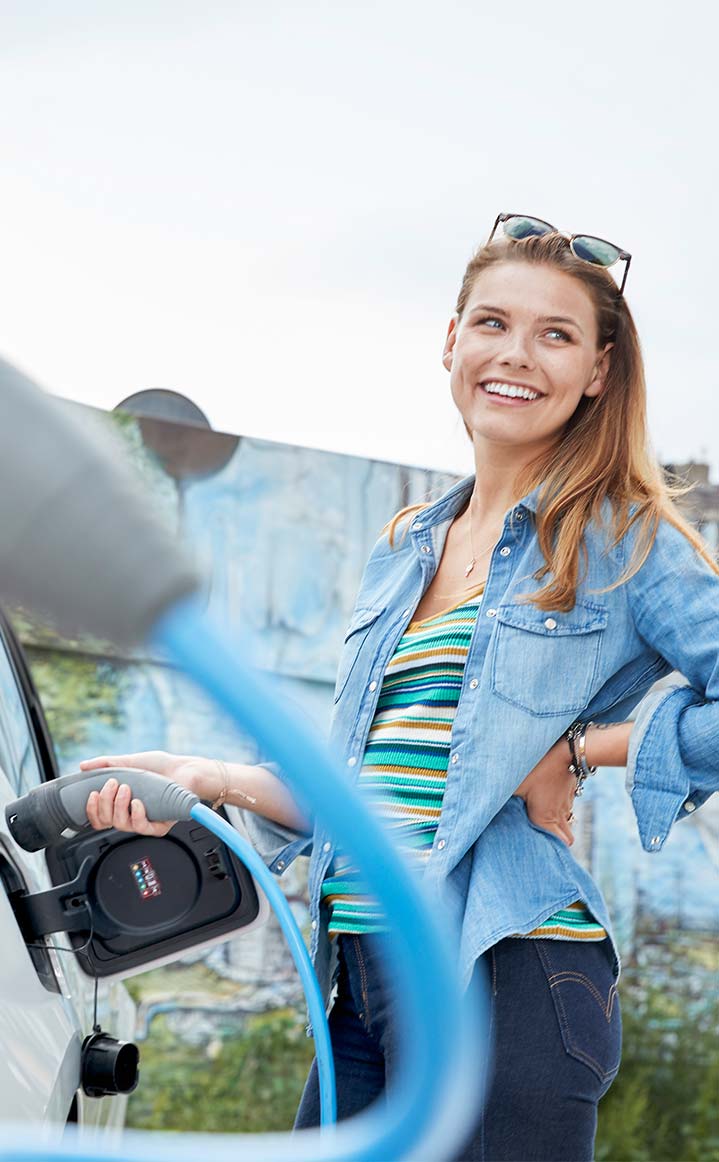
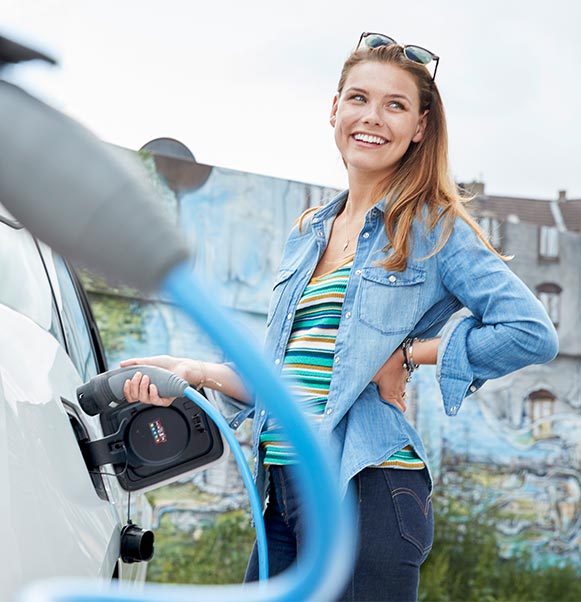
Electric vehicle charging
If you've got an electric car, we're here to support your EV journey. Find out how our eBox chargers, dedicated tariffs and the E.ON Drive network can help you.
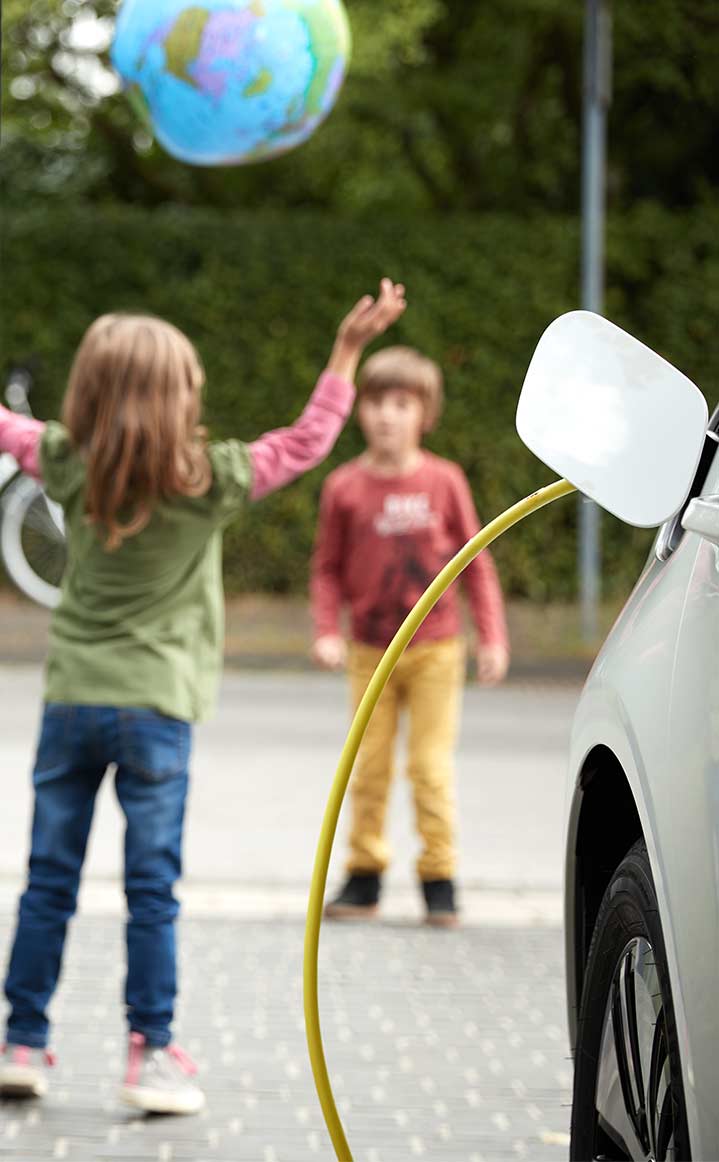
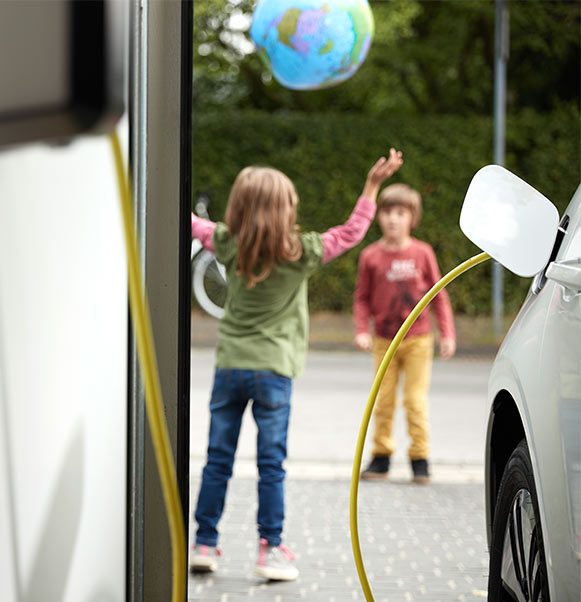
Electric vehicle charging at home
We're with you every mile of your electric car journey. We offer sleek and intuitive EV chargers as well as dedicated tariffs and access to over 30,000 charging points across the UK and Europe with our E.ON Drive network.
